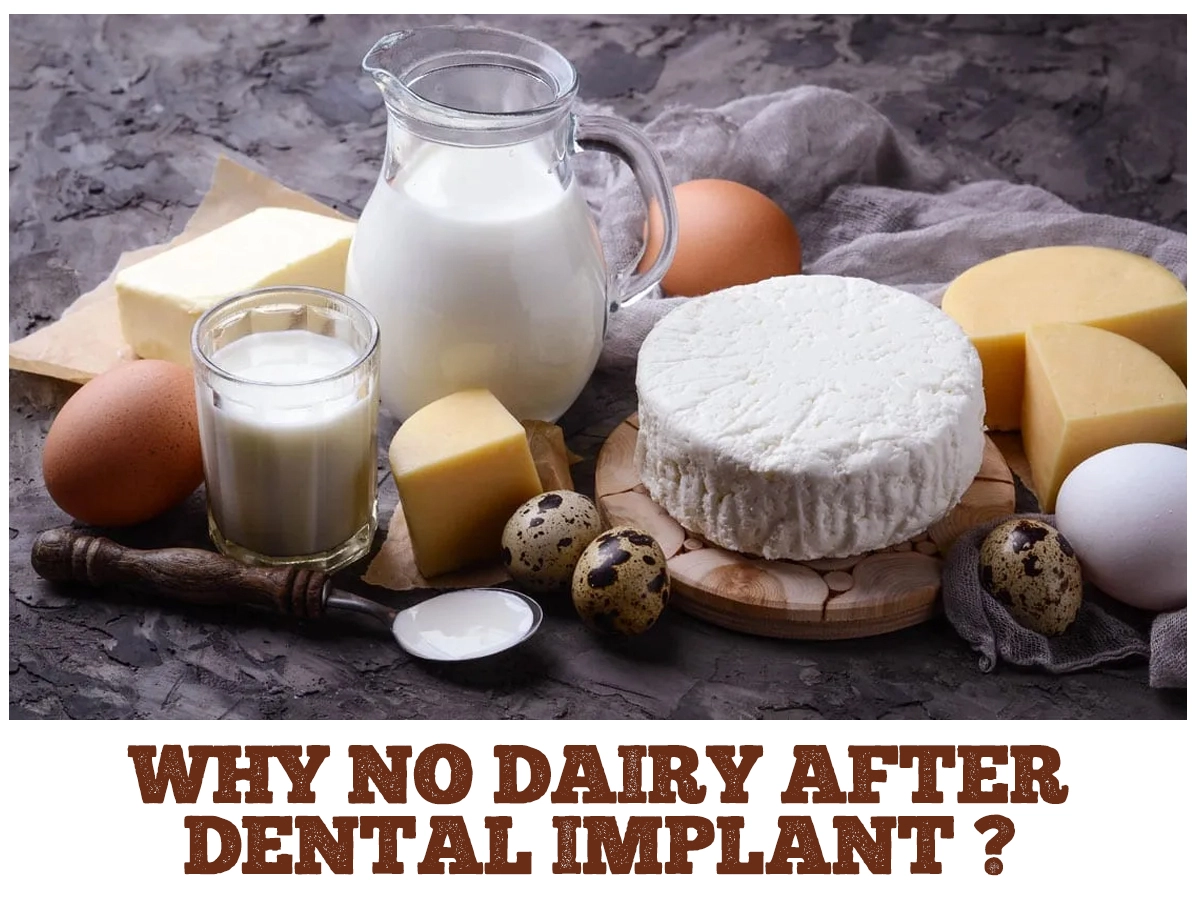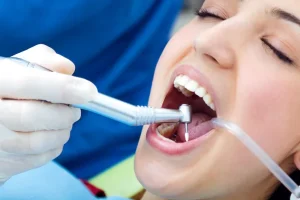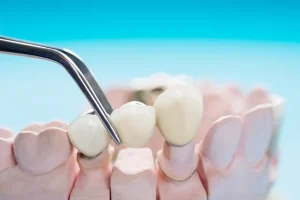Why no dairy after dental implants? This question is most commonly asked by people who are in the process of getting dental implants, especially post-surgery.
Usually, a patient requires some time after dental implant surgery to settle and heal because when a dental implant is fitted into your jawbone, it takes time to integrate with the surrounding bone and tissue. After the dental implant procedure, some swelling and minor bleeding near the area are regular and take a few days to reduce.
One of the critical steps to ensuring that your dental implant has time to heal involves watching the foods you consume after dental implants, especially for the first few weeks after the dental implant has been fitted. It is essential to have a soft-food diet during this crucial period.
After the dental implants have osseointegrated and your mouth has fully healed, you can eat whatever you like. However, there are some food restrictions that the dentist or dental practitioner will place after dental implant surgery. These recommendations are best for comfort and healing after your dental implant procedure and should be followed strictly.
Keep reading to know more about why no dairy after dental implants is a standard aftercare guideline set by dentists, and also discover dairy-free alternatives.
Table of Contents
What to Eat after Dental Implant Surgery?
After the dentist places your dental implants, your teeth and jaw will be very delicate. Sticking to a soft food diet for at least the first 24 hours after the dental implant surgery is essential. Incorporating the following foods will help you plan your meal:
- Applesauce: It provides many nutrients and does not harm your dental implants.
- Cold Soups: While avoiding hot liquids and foods is necessary, you can still enjoy cold soups such as gazpacho.
- Smoothies: They not only contain essential vitamins to restore your energy but also don’t require chewing, making them an ideal meal option.

It’s important to avoid using a straw while drinking liquids because the suction force puts pressure on your implant interfering with healing. You must also refrain from smoking and drinking alcohol for at least a few days.
Foods That Promote Recovery
You may slowly reintroduce solid foods into your diet as your jawbone continues to heal. Choose meals rich in protein and other essential nutrients to speed up recovery. Some of these foods include:
- Fish, Chicken, & Ground Beef: Slowly introducing meat into your diet is essential. Begin with softer meats like fish, chicken, and ground beef that you can finely chop into pasta and salads for a more delicious meal.
- Potatoes: Potatoes are very versatile, and you can prepare them several ways without losing their soft texture.
- Eggs and Omelets: Eggs are filled with protein and easy to chew. To make an omelet mix them with vegetables for a well-balanced diet.
Foods to Avoid After Dental Implant Surgery

There are some foods most dentist recommends avoiding after dental implant surgery, including the following:
- Crunchy foods – You must avoid crunchy foods like popcorn and chips to ensure you heal quickly.
- Sticky foods – Sticky foods such as caramel or taffy need a lot of chewing and can stick to your dental implant and the surgical site, increasing the risk of infection.
- Tough and chewy foods – Very tough & chewy foods like steak, jerky, and raw vegetables are not generally a good choice after surgery.
- Hard foods – Don’t chew on hard candy, nuts, ice, or other hard foods, as they may damage your implant.
- Spicy foods – Extremely spicy foods irritate your surgical site causing pain and discomfort. Until your mouth completely heals, avoid these foods.
Besides these foods, it is crucial to avoid dairy products after dental implant surgery.
But Why is No Dairy after Dental Implants?
Yes, it’s true; in the days after dental implant surgery, it is important to avoid dairy products, even though they are a good source of protein and are soft. So, why is there no dairy after dental implants? Dairy products cause an inflammatory response in the oral tissues, which is undesirable after a dental implant procedure.
Dairy also triggers nausea and vomiting. While these side effects are unpleasant, vomiting can compromise your newly placed dental implant and even introduce acidity into your mouth as you try to heal.
Examples of dairy food you should avoid are:
- Yogurt
- Cheese
- Cow’s milk
Once your oral surgeon gives you the green light, you can add dairy products to your diet to benefit from their high calcium and protein content.
Will You be Able to Eat Normally Again After Dental Implants?
The answer to this question is a tremendous YES! One of the best advantages of dental implants is that you can generally eat once your dental implants heal and the final set of prosthetic teeth has been placed. You will have no dietary restrictions and can eat anything you wish without fear or anxiety!
Have More Questions About Dental Implant Aftercare? Contact Anoka Dental today!
If you want to restore your missing teeth permanently, dental implants are a great way. However, many people are puzzled by aftercare instructions and have questions about the same, e.g., why there is no dairy after dental implants, etc.
If you are interested in replacing one or more missing teeth using implants, Anoka Dental is here to help.
Don’t hesitate to contact us to schedule a consultation today and have our experts answer all your dental implant questions.




